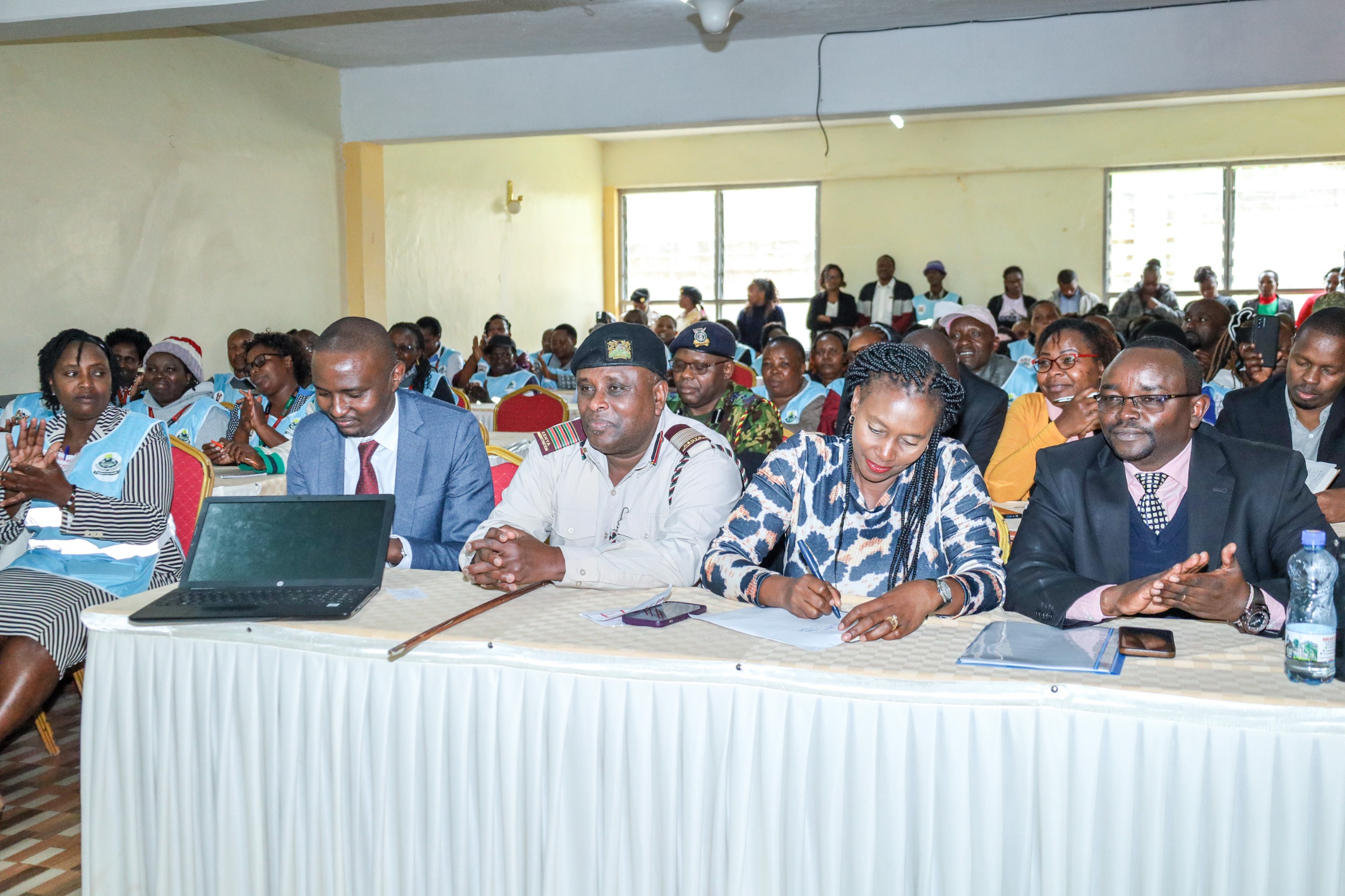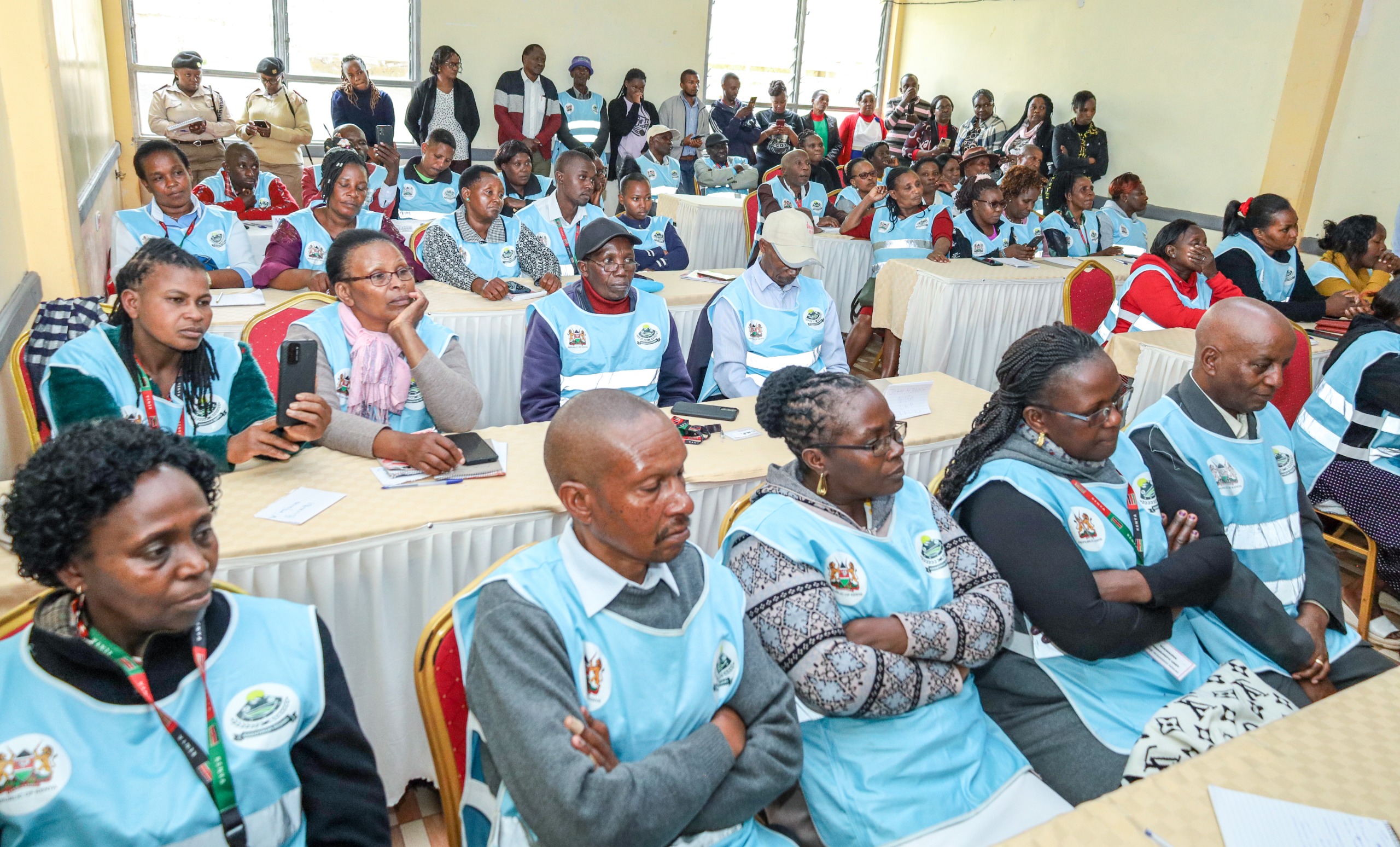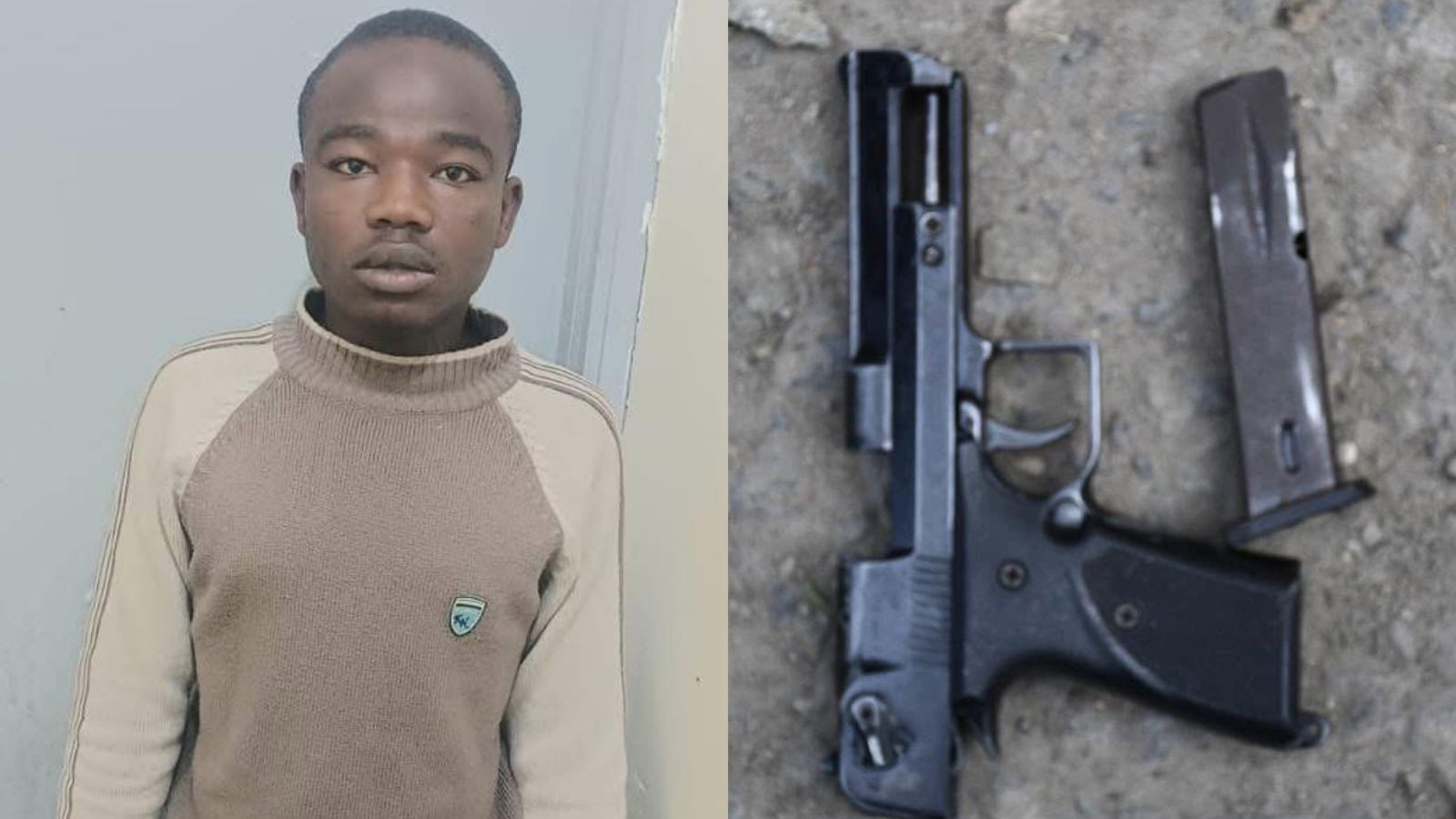The Kirinyaga County Government has trained 1,222 Community Health Promoters (CHPs) in its bid to enhance their capacity to perform their role in the delivery of primary healthcare within the county.
During the two-week training, the CHPs were trained in the use of electronic health information systems, among other aspects of health care.
The CHPs were also trained in undertaking basic tests and on making referrals where necessary.
Speaking during a visit at the training venue on Wednesday, August 7, Health Principal Secretary Mary Muthoni emphasized the central role that the CHPs play in advancing Universal Health Coverage (UHC) across the region.
The PS said that her department was committed to training of all cadres of health workers.
Read More
“For now we are training CHPs on basic modules of healthcare including mother and child health, use and distribution of dewormers, and basic water treatment methods among others,” she said, observing that the shared arrangement to have the CHPs given a stipend has gone a long way in alleviating some of the challenges which they previously faced.

Muthoni also commended the CHPs’ commitment and the important part they play in enhancing health outcomes at the community level.
Kirinyaga County Executive Committee Member for Health, George Karoki on his part observed that since the deployment of the CHPs in the communities, the number of referrals to the hospitals has increased.
Karoki appreciated the National Government’s support of the CHP program which included the issuance of 854 kits and phones and requested the disbursement of the remaining kits to enhance the performance of the rest of CHPS.
Rachael Njambi, a Community Health Promoter from Kiaritha observed that the two weeks of training had equipped them with the relevant knowledge that they will share with their community as far as health matters are concerned.
Kirinyaga Governor Anne Waiguru had commissioned the CHPs eight months ago and they were deployed to community health units within the county.
They were equipped with medical kits containing of essential commodities such as a First Aid Box, weighing scale, clinical thermometer, measuring tape, blood pressure machine, blood sugar machine, medicine box, and a flashlight.
The CHPs were also given a mobile gadget to enable them to document, store, and relay important data.







